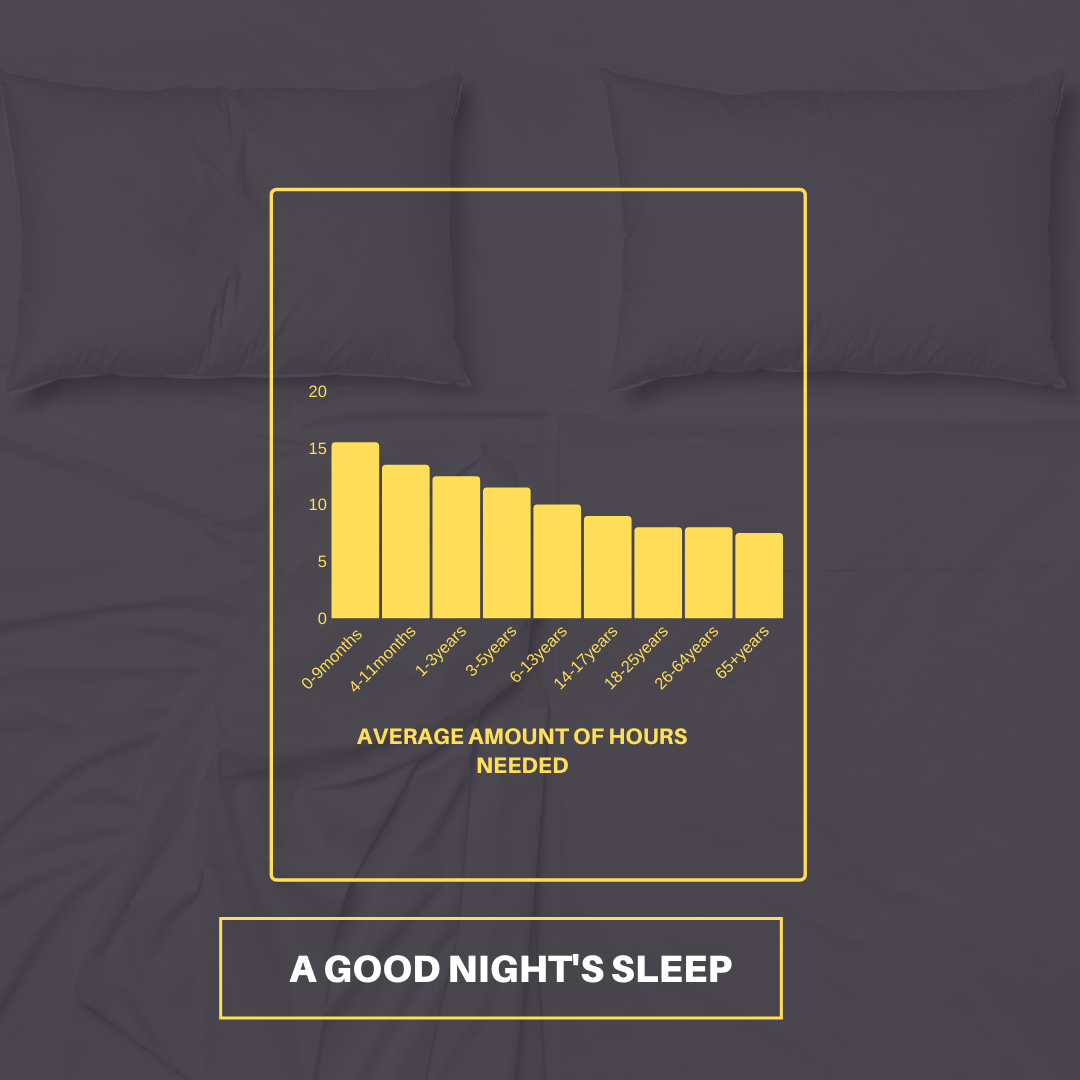|
During a perfect night’s sleep, we’d go through roughly five cycles of 5 stages while asleep. Stage one is the lightest stage where we can be easily awoken. Stage two is where our heart rate begins to decrease, muscles begin to contract and relax and body temperature drops in preparation for the deeper stages of sleep. Stage three and four are deep sleep phases, known as the restorative phases where growth hormone is released. Growth hormone has a positive impact on your immune system, muscles and bones and is important both now and as we age. Then we reach the final phase, REM, where we dream. We’ll usually pass through all five stages: 1,2,3,4 and REM before cycling to 1 and beginning the process all over again. During the first half of the evening, we’re more “restorative” dominant before experiencing longer REM cycles closer to our waking time. Each cycle lasts for around 90-110 minutes, but since the average total sleeping time has decreased over the past 110 years, most only seem to be cycling through 4 cycles or less. In 1910 the average sleep time was around 9 hours per night – in 2018 the average was just 6.9 hours. But, the perfect amount of time will depend on your age – see the picture below! Here are a few ideas to help you increase your total sleep time: 1. Planning your sleep like you do your workouts - scheduling a few early nights each week (which I regularly do with my clients), just like your workouts, is a great way to maximise both. 2. More actual time in your bed - this is actually one of the best places to start. Your body and mind need the time to slow down, and so jumping into bed 30-45 minutes before your bedtime will help you unwind. 3. Creating left-overs - Instead of cooking multiple meals a day, try increasing the volume and creating leftovers which can easily be consumed (quickly) for breakfast or lunch the next day. 4. Pre-planning – Packing your bag the night before and laying out your clothes, coffee and teas, supplements and any non-chilled foods will save you so much time! Increasing the quantity and quality of your sleep is LOW HANGING fruit when it comes to improving your health and fitness. It’s possibly the EASIEST health strategy along with walking and drinking water daily. I’d love to know how many hours you’re currently getting and how you’re applying these four strategies into your lifestyle! Speak soon. JC.
0 Comments
Leave a Reply. |
AuthorsJC and The Nutri-Team Archives
November 2020
Categories
All
|


 RSS Feed
RSS Feed
